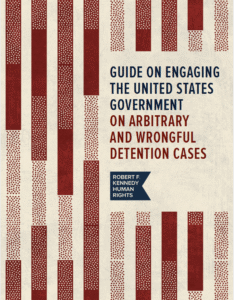Around the world, women’s voices have catalyzed movements against repressive regimes, gender-based violence, inequality, and other threats to human rights. Through their advocacy, women have demanded a public platform to be heard, expanding civic space in their communities and pushing back on the marginalization of women human rights defenders. Today, on International Women’s Day, we salute these agents of change — including our partners and laureates– and their pivotal role in advancing human rights.
Across the African region, women human rights defenders are leading movements for social change and pushing back against patriarchal constraints. Women of Zimbabwe Arise organizers decided to lead by example, convening mass demonstrations for years to call for responsive government. WOZA shows fellow Zimbabweans that strategic nonviolence can yield positive results. Women in academia have blended scholarship with practice, including Stella Nyanzi, who has pushed boundaries with her provocative criticism of the president and her work in Uganda on women’s rights, LGBTI advocacy, and sexual freedom. Activists like Aya Hijazi, who spent three years unlawfully detained in an Egyptian prison, have dedicated themselves to fighting against crackdowns on civil society and the use of punitive pre-trial detention. These courageous women are on the front lines, demanding accountability for injustices.
In Latin America, women have organized to combat pervasive patterns of gender-based violence throughout the region. Women in México have been particularly active, making visible the systemic nature of this violence and challenging the corresponding impunity in their country. We have partnered with CEDIMAC, an organization dedicated to supporting the families of murdered and disappeared women in Ciudad Juárez, to represent victims of femicide who have brought their case before the Inter-American Commission on Human Rights (IACHR) after years of stagnation and inaction by local authorities. These efforts are complemented by a tangible movement throughout the region characterized by consistent imagery (pink crosses and the color purple), slogans demanding change (“Ni Una Más”, which translates to “not one more”), and large-scale peaceful protests. Many participants are family members of victims: mothers who continue to search for their disappeared daughters, siblings fighting for truth and justice on behalf of their murdered sisters, or women living in communities where they refuse to allow this violence to be normalized.
In other parts of the region, LGBTI activists have engaged in targeted litigation efforts to fight discrimination based on gender identity and sexual orientation. In Honduras, the Red Lesbica Cattrachas has worked to hold the Honduran government accountable for violations of the rights of transwomen and other LGBTI individuals. Last year, we worked with them to file a merits brief before the IACHR in a landmark case that argues that gender identity is protected by the right to freedom of expression. In the face of extreme threats of violence to human rights defenders, women in Latin America have bravely demanded to be part of the conversation, combining innovative legal strategies with grassroots mobilization to ensure that their governments take notice and act.
We celebrate these activists and renew our commitment to work alongside them, supporting their efforts and amplifying their messages with strategic litigation and advocacy.




